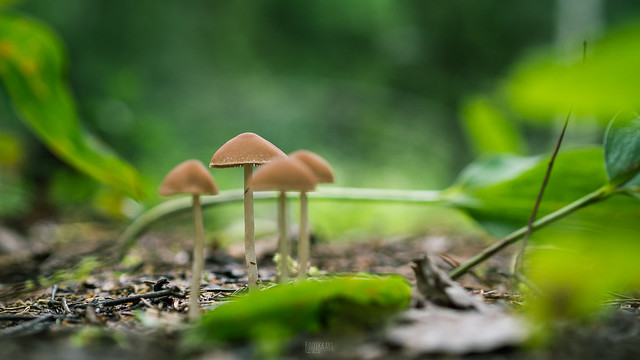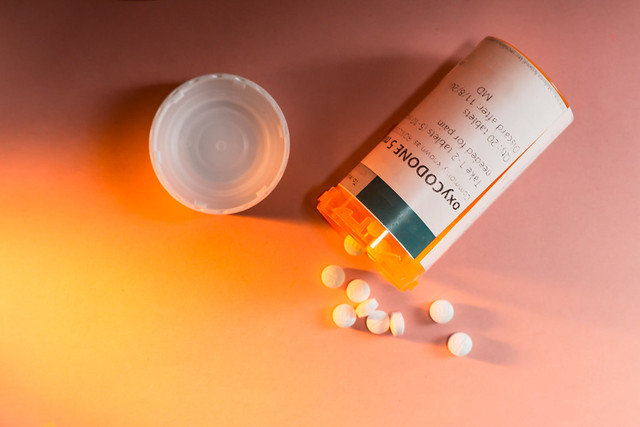Is Marijuana an Effective Treatment for Veterans?
Written by HMG Staff on 07/17/2019
As we discussed last week, the process of medicating veterans with opioid painkillers has serious drawbacks. Post traumatic stress disorder, which many veterans unfortunately suffer from, makes it easier to get hooked on these addictive drugs. Likewise, the opioids actually exacerbate the symptoms of PTSD.
With that in mind, Heroes Media Group wants to find alternative medication for readers suffering from PTSD and chronic pain. One potential treatment many of you have probably considered is medical marijuana.
Through word-of-mouth, you’ve probably heard of the benefits. Marijuana use among veterans across the country is up, even in states where it’s still illegal. Veterans have reported the drug helps with pain, insomnia, anxiety and nightmares far more than pills prescribed by the VA. It’s also free of the cumbersome side effects, like mood swings, dulled senses, and decreased libido, that VA pills often afflict.
But this method of recovery has downsides as well. Because the VA is a federal agency, doctors there cannot prescribe medical marijuana. It’s not covered by VA insurance. In fact, veterans caught partaking are at risk of losing their benefits. And there’s very little research into side effects and long term health consequences.
So should veterans be turning to weed as an alternative? Is it safe and healthy, and does it work better than opioids? The unfortunate answer is that the scientific community doesn’t really know yet.
Marijuana is Illegal to Research
Marijuana is classified as a Schedule I controlled substance, the highest possible classification for a narcotic. The US government considers Schedule I drugs highly addictive and possessing no medical applications. That classification is, frankly, ridiculous – meth and cocaine are both Schedule II.
Former Nixon advisor John Ehrlichman admitted in a 1994 interview that marijuana’s harsh scheduling, and the drug war in general, was intended to criminalize political opponents of the administration.
“By getting the public to associate the hippies with marijuana and blacks with heroin, and then criminalizing both heavily,” Ehrlichman told reporter Dan Baum. “We could disrupt those communities…arrest their leaders, raid their homes, and vilify them night after night on the evening news.”
“Did we know we were lying about the drugs? Of course we did.”
So marijuana’s legal status is arbitrary; the relic of a Nixon-era culture war. And scientific research into its potential health benefits suffers for it. Multiple factors make the substance nearly impossible to study.
Federal law prohibits Congress from allocating funds to research any Schedule I substances. Only one facility in the country, at the University of Mississippi, is legally permitted to grow pot for medical research. This makes it logistically burdensome to obtain enough marijuana for a large enough sample size for a scientific study. Researchers studying pot have also fallen victim to professional woes. Sue Sisley, a University of Arizona professor, was fired for studying the effects of marijuana on veterans with PTSD.
If marijuana is impossible to study, we cannot conclusively identify the risks and benefits. No matter your personal opinion on the drug, a lack of data hurts everyone – especially the veterans already using it.
AOC’S Amendment
Some members of Congress have recognized this issue and moved to rectify it. Representative Alexandria Ocasio-Cortez submitted an amendment that would have repealed the ban on studying Schedule I drugs last month.
“My colleagues on the other side of the aisle often bemoan the role of government and promote ideas of choice,” Ocasio-Cortez said in support of the amendment. “And here I am happy in that spirit to agree. We should get government and political opinion out of scientific research.”
Ocasio-Cortez’s amendment had bipartisan support. It was defeated with bipartisan opposition. Its most vocal opponent was Republican Representative Andy Harris of Maryland. He called weed a “gateway drug” that “induces psychosis in young people.” The top contributor to Harris’s campaign fund last election cycle was the healthcare and pharmaceutical industry.
The VA recently voiced opposition to three similar legislative efforts that would improve veteran’s access to medicinal marijuana. The bills would have funded research into marijuana’s medicinal effects and protected veterans who talk about pot with their VA doctors from losing their benefits, as mentioned above.
Their rationale? The lack of conclusive evidence of marijuana’s health benefits.
But isn’t that the point of research?
What Do We Know, Then?
Lacking much in the way of hard data, we unfortunately have to base our conclusions on the stories of individual veterans.
José Belén, founder of veteran suicide prevention nonprofit Mission Zero, penned an op-ed about his marijuana use. Belén contends the drug was crucial to his transition from military to corporate life. He says the VA pills made his newfound job as an insurance agent impossible because they were “driving [him] insane.” Belén is suing the US government to have marijuana removed from Schedule I classification.
Mychol Robirds, who claims to have taken “10,000 pills in less than ten years,” said that after switching to cannabis, the nightmares that had haunted him since his return to civilian life had disappeared. Robirds now runs his own business: Hero Payments, a merchant processing company that services dispensaries.
Three veterans, independent of one another, told a reporter at TheStranger.com that cannabis had saved their lives. Identified only as Kevin, Justin, Andrew, the men gave eerily similar accounts of alcohol dependence, violent behavior and suicidal ideation. Weaning off the combat cocktails with weed alleviated those symptoms.
Justin said an overlooked benefit of marijuana is how it aids the transition to civilian life by simply slowing veterans down. Soldiers in active combat situations have a constant sense of danger awareness. They need to think and react to potential threats in milliseconds. That mindset, which stays with them after their return, is a hindrance in civilian life.
“For them to say this is not medicine is absurd.” ~Andrew, a veteran quoted in the story above.
CBD, an active ingredient in hemp, is anxiolytic, which means it reduces anxiety. It relieves pain and ameliorates insomnia. And, contrary to what its Schedule I classification implies, it has a low addictive potential.
An important note is the difference between CBD and THC, the compound that gets you high. THC has also been observed improving pain, nausea, insomnia, and anxiety. But, if you choose to follow that route, you should be prepared for its psychoactive effects. especially if you’re still taking pills or drinking alcohol.
With a dearth of hard data on marijuana’s health benefits, Heroes Media Group can’t definitively say it will help you. Different treatments work for different people. If you are thinking about transitioning to marijuana products, we simply counsel you do so carefully. Consider reaching out to other veterans using it for more personalized advice. And remember that there is no magic bullet. Spend time with friends and family. Get a stable job that gives you something to focus on. Eat healthy. If your pain is receding, and you are physically able, exercise. It is the laying of these individual bricks that builds the road to recovery.
Next week, we will look at the potential of other Schedule I psychedelics to treat health issues affecting the veterans community.
Photo credit to Laurie Avocado.





